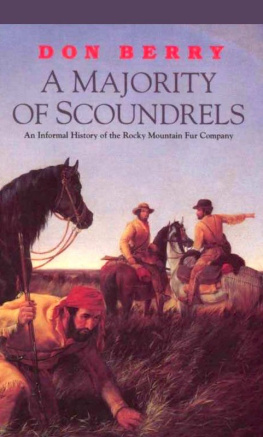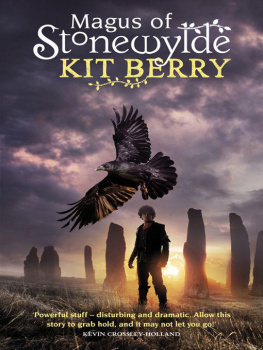Don Berry - Moontrap
Here you can read online Don Berry - Moontrap full text of the book (entire story) in english for free. Download pdf and epub, get meaning, cover and reviews about this ebook. year: 1962, publisher: Oregon State University Press, genre: Detective and thriller. Description of the work, (preface) as well as reviews are available. Best literature library LitArk.com created for fans of good reading and offers a wide selection of genres:
Romance novel
Science fiction
Adventure
Detective
Science
History
Home and family
Prose
Art
Politics
Computer
Non-fiction
Religion
Business
Children
Humor
Choose a favorite category and find really read worthwhile books. Enjoy immersion in the world of imagination, feel the emotions of the characters or learn something new for yourself, make an fascinating discovery.

- Book:Moontrap
- Author:
- Publisher:Oregon State University Press
- Genre:
- Year:1962
- Rating:5 / 5
- Favourites:Add to favourites
- Your mark:
- 100
- 1
- 2
- 3
- 4
- 5
Moontrap: summary, description and annotation
We offer to read an annotation, description, summary or preface (depends on what the author of the book "Moontrap" wrote himself). If you haven't found the necessary information about the book — write in the comments, we will try to find it.
Moontrap — read online for free the complete book (whole text) full work
Below is the text of the book, divided by pages. System saving the place of the last page read, allows you to conveniently read the book "Moontrap" online for free, without having to search again every time where you left off. Put a bookmark, and you can go to the page where you finished reading at any time.
Font size:
Interval:
Bookmark:
Moontrap
Don Berry
1962
To Wynwith love
for a certain patience
with the old man on
othermountains, other trails
Chapter One
The old man traveled alone. He came riding from thenorth, a skeleton rider on a bony horse, plodding methodically alongthe riverbank. He sat humped in the saddle with the posture of a manwho has ridden many miles, and knows there is no speed in haste.
Two locks of hairlong, thick, heavilygreaseddangled in front of his ears, set into gentle swaying bythe jarring steps of the horse and the endless watchful movement ofthe man's head. A great limp-brimmed felt hat dwarfed his features.The old man's buckskin hunting shirt folded from the points of hisshoulders as from pegs in a wall, and it was a mottled black ofgrease and dirt and dried blood. His breeches were buckskin to theknees (bony pinnacles, threatening to tear through the leather), butthe bottoms of the legs were of blanket cloth. It had shrunk inwetting so that eight inches of grimed and bony leg showed betweentrouser bottoms and moccasins.
It was not yet dawn. The eastern sky was beginning tobe light, a heavy grayness like a pool of dull Galena lead suspendedoverhead; but it was not yet tme dawn. In the cool and neutral lighthe came to a river crossing his path, and stopped. He dismounted,letting the reins drop to the ground, and his horse began to browsecontentedly among the ferns at the river's edge, nosing them gentlyaside to find the rich grass beneath.
The old man walked to the very bank of the river,cautiously. He scanned both banks with care, watching for movement,listening. alert to any sign that he was not alone. A few hundredyards to his right the fast-moving stream emptied into the largerriver along which he had been riding. The large stream, he knew, wascalled the Willamette. He grunted deep in his throat, and the soundwas like the coughing snort of a bear.
" Wagh! "
He looked at the meeting of waters, watching theripples of the fast-running tributary lose themselves in the widerflood. It was vaguely annoying that the Willamette should run north.Sensible river'd run south, he figured. All of them did.
Except the Yellowstone. And the Bighorn. And thePowder and the Rosebud... he remembered. He snorted. "Don'tmake no difference," he said aloud. "Goes against natureanyways."
He was not happy about the river he had to cross. Thebanks were heavily wooded, timbered almost to the edge, with thethick growth of brush he'd found everywhere in this rain-soakedcountry matted below the trees. It was good cover. Put a whole damnedPiegan encampment in there, and you'd never see it.
He squatted on his haunches and pushed back the brimof the huge felt. Finally he spat down into the river and grunted. Hetold himself it didn't matterhe was in civilization now, just anhour or so from Oregon City. But suspicion of good cover was a habitof his life, and there was neither way nor reason, now, to change thehabits of his life.
He shrugged and stood again, absently fingering theends of one long braid of hair. He'd cross, because there was nothingelse to do.
He remounted, swinging easily into the saddle, andlet the old horse slide down the bank and into the water. The riveritself was little different from any other; so viciously cold itseemed solid, so swift the horse's feet were swept out from under herin the first five seconds.
The water closed around the old man's legs with thepainful pressure of drying rawhide. As the horse lost her footing andplunged deep, the vise of cold clamped suddenly around the old man'sgroin, making him gasp with the shock of it. Together, as one animal,they floundered across the stream and scrambled up the opposite bank,many yards downstream toward the confluence. At the top the horsestopped and shook her head like a dog, stretching her neck to relievethe cramp of cold. The old man kicked her furiously in the ribs.
" Wagh! C'mon, y'wuthless hunk o' meat. Hya!"
In her own time, the horse resumed her steady pace,unconcerned. The freezing chill of the water had seeped into the oldman's bones, and his testicles ached as though he had been kicked. Heput it away from his mind; he had crossed many cold rivers and he wasno longer interested in the pain they gave him.
"Damn poor doin's," he muttered vaguely,meaning not the river but things in general. He was mildlydisappointed that he had not been attacked; the place was perfect. Itwas a kind of waste.
He laughed, a short, yelping bark that made thehorses ears twitch. It reminded him of another time, reminded him ofa story he'd been meaning to tell himself. "It was some, now,"he muttered under his breath. "It was. Was Doc and Gabe and thischild as was just down from the Roche Jaune with three inches o' ironin the hump ribs..."
The horse's hoofs thumped dully along the trail. Witha habit so old he was no longer aware of it, the old man scanned theforest on either side of the trail, watching. To his left the easternsky soaked up light from the coming dawn, and on the right the broadsweeping flood of the Willamette reflected the silver grayness of thesky in its current, silent in the early morning, glimpsed between theendless ranks of firs.
" Had a hair o' the black bear to him, now. Well ,he did," the old man muttered. It was a long time ago, but itwas very clear in his mind. He traveled along, telling himself astory of men long dead and what they had to say and where they wentand what they did there. From time to time he gently eased the horseout to the bank of the Willamette, so he could see more clearlyupriver. He could see the great horseshoe of the falls ahead, and thedistant, steady murmur of white water came to him. Just below thecascade that stretched across the river was a small island, and therewas a faint plume of white smoke rising from it into the stillmorning air. He watched it.
" Major says, 'Gabe, sorry as hell about the man,but no damned rascal of a 'Rapaho going t' insult my wife, hear?' "His monologue was endless, as life itself was endless. In the tellinghe became a sort of god, for he restored warmth to flesh long sincecold and gave living bodies back to bones picked white and clean inthe mountain valleys.
" Gabe says, 'Meek, you know the rules aboutfirin' offa gun in camp.' 'Hell's full o' such rules,' says theMajor, cleanin' his gun just as ca'm as ca'm .... "
The plume of smoke wasfrom a building built near the edge of the island. A mill, near asthe old man could make out, and no threat to him. He tugged gently onthe reins and the bony horse moved obediently back inland to thetrail. In half an hour he had come into sight of the first of thebuildings of Oregon City, perched high on a cliff overlooking thefalls of the Willamette.
***
The old man did not go into the main settlement. Hestayed low, on the bench of land bordering the river. From below hecould see a few houses of the cliff-perched settlement, one of themlarge, white, and freshly painted. Though he had never before beenwithin a thousand miles of the place, he recognized the house asbeing that of John McLoughlin. He recognized most of the buildings hesaw, except for the very new ones. In winter camp, sitting halffrozen around a lodge fire, a man had a chance to pick up a good bitof information. Oregon City had been described to him once, and as amatter of habit each detail had remained fresh in his mind, waitingfor the time it would be needed. He was a mountain man; it was hisway.
The old man reined up, surveying the buildings of theupper town, the few frame structures now beginning to be built lowerdown, on the bench. There was a ferry landing, and he figured it wasthe ferry McLoughlin had started when he left Hudson's Bay. On theopposite side of the river was another settlementa few buildings,rather, straggling among the timbered hills. Went by the name ofLinn, he recalled.
Next pageFont size:
Interval:
Bookmark:
Similar books «Moontrap»
Look at similar books to Moontrap. We have selected literature similar in name and meaning in the hope of providing readers with more options to find new, interesting, not yet read works.
Discussion, reviews of the book Moontrap and just readers' own opinions. Leave your comments, write what you think about the work, its meaning or the main characters. Specify what exactly you liked and what you didn't like, and why you think so.












